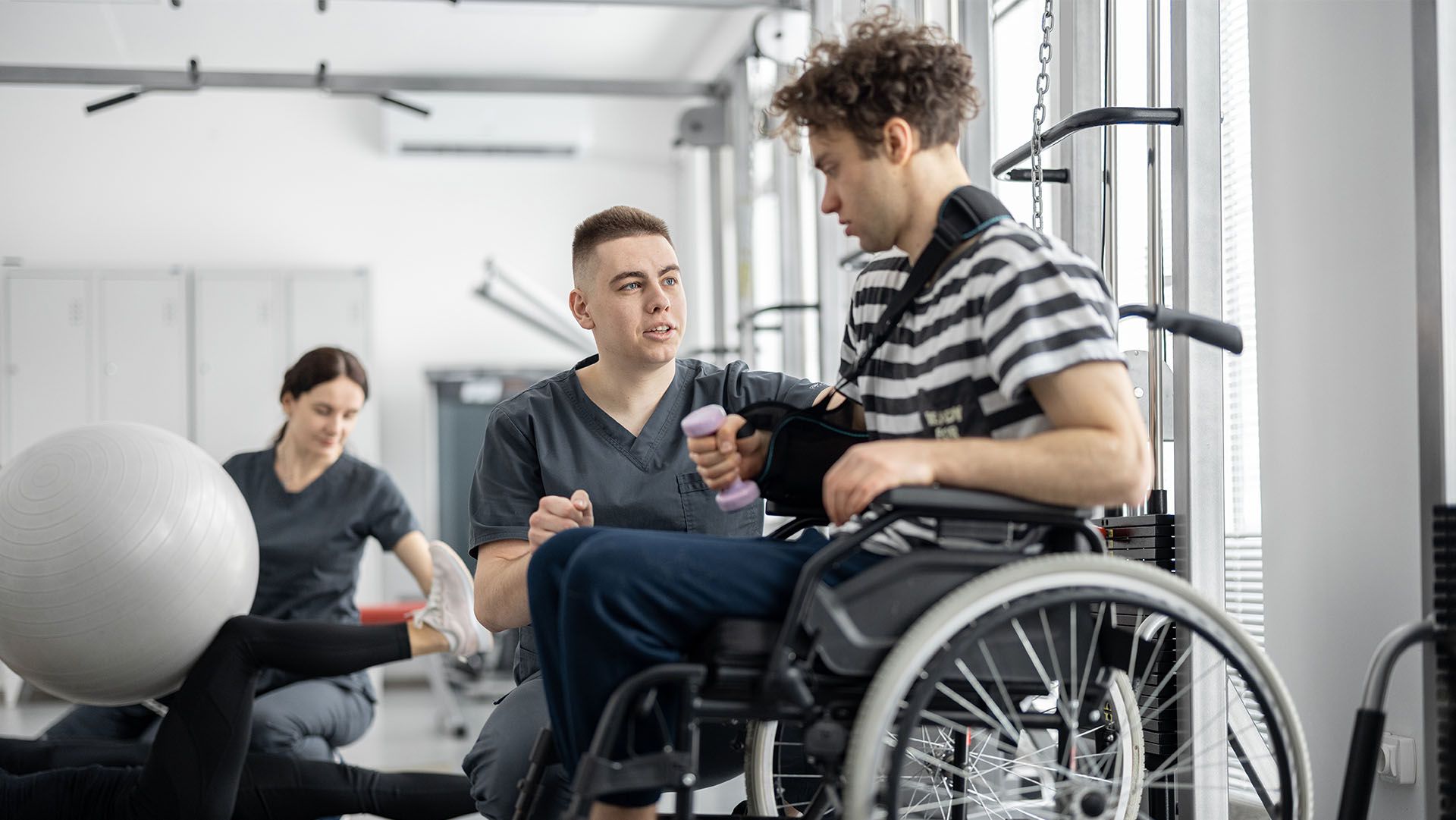Support After Addiction Rehab
Completing addiction rehab is a substantial goal to achieve, and if you’ve made it to that point you should be incredibly proud. It might feel like you are at the end of a long journey when in truth this is just the beginning. Maintaining sobriety and continuing with recovery starts with the decision to try, and in many ways, it never ends. Recovery is truly ongoing work, which is why it’s important to find support after addiction rehab.
The good news is that there are so many options when it comes to finding support, and you can decide which options work best for you. Your aftercare is up to you, and you have the autonomy to choose.
Support Options
Therapy
Therapy is unique in that it can be offered in very specialized ways. Some therapists will be able to help with mental health issues. Others may offer couples counselling if that’s what you need. Some counsellors may be more well-versed in anger management. That means that you can pick the type of therapy that works best for you.
You can also choose a therapist that works best for you – there are many different types out there! It’s important to choose a therapist that you will feel comfortable being completely and totally honest with. That trust and honesty in the client-therapist relationship is the foundation of effective therapy.
Non-conventional/Holistic Methods
Art Therapy, Music Therapy, and Reiki or Energy Healing can also be used to help you on your recovery journey after treatment. In fact, you may have engaged in some of these methods during your treatment – but that doesn’t mean you need to stop there. Being open-minded to different types of support can only help you. Holistic methods of expression such as these have been shown to be beneficial for those with addiction struggles.
These methods are something you can practice on your own, with a group, with a practitioner ( such as a Reiki practitioner ) or with a therapist who is certified to do so. That leaves the door wide open for you to explore these supports further in whichever way makes sense for you.
Medical Support
You should utilize medical support if you need it. There are mental health conditions that can contribute to substance use disorders, and some of these conditions can be managed in part with medication. This is not a support that you necessarily have to utilize, but you should know it’s there if you need it.
There are other medical interventions that can help you kick cravings. For instance, some alcoholics utilize Antabuse (also known as Disulfiram). Taking Antabuse ensures that if an individual drinks alcohol, they will immediately feel extremely sick and experience hangover-like symptoms. This can be a helpful deterrent for the person to use.
Make an appointment and ask your doctor about medical interventions that can deter your cravings, and see if they have something they can offer you. Options may depend on the substance you have struggled with previously. There may be medications to consider that deal with prolonged withdrawal symptoms, such as anxiety and depression. It never hurts to ask your doctor about this and see what options if any are available that would make sense for you.
Group Support
12-step group support programs like Alcoholics Anonymous (AA) and Narcotics Anonymous (NA) help thousands of people continue to live healthy, successful, substance-free lives. These 12-step programs are designed around a group of spiritual principles that are intended to help the individual become free of their addiction. These principles must be practiced throughout life. This kind of support offers a sense of community and connectedness. Meetings are held often and typically revolve around a sharing of experiences.
If any aspect of this program deters you, know that it is not the only option. There is another group support program called SMART Recovery, which is quite different from AA. The SMART in SMART Recovery stands for Self-Management and Recovery Training. This approach takes a scientific approach and uses cognitive-behavioural therapy to help a person overcome their addiction, and provides support for those sober and in recovery.
SMART Recovery meetings focus more on bringing you the tools you need throughout your day-to-day life to abstain from using. The focus is always on the now and the future, as opposed to thinking about what has happened in the past. SMART Recovery has helped many individuals propel themselves forward during and after rehab and maintain abstinence.
Self-Help Books
Being active in your recovery can be as simple as staying home and reading a book. There are plenty of books out there that can support you on your journey. Some are written by professionals with a medical or scientific background, and others by professionals with an education in psychology.
But not every self-help book you read needs to be factual or evidence-based. There are also books that have been written by people who have been through what you are going through. By sharing their experiences in writing, they connect with you in a way that invites you along for the ride. These books can help reduce feelings of isolation by reminding you that you are truly not alone.
Crisis Lines
A crisis line is just what it sounds like: a phone line you can call when you are in crisis. Crisis lines are not for everyday support, but if you are having a tough moment and tempted to use them, they are a great resource.
The individuals who answer the phone on these lines are typically trained to support people with mental health issues and have some knowledge of the tools and resources available. If not, they can still offer an ear to listen, if you need that too.
How Friends and Family Members Can Support You
It’s completely normal to rely on friends and family members for support, whether you have struggled with addiction or not. For your family and friends to support you effectively, they need to know what that means.
It is important for your friends and family to understand the difference between encouraging and enabling. Encouragement and support are offering that uplifting emotional resource in a way that maintains healthy boundaries. Enabling is when a friend or family member tries to solve or fix a problem to save a loved one from the consequences.
When you are in outpatient or inpatient treatment, it’s the perfect time for your friends and family to engage in some therapy of their own. This will help them learn how to support you in a way that benefits both parties long-term.
There is some research that shows that when an addict’s family members engage in family therapy, it increases the likelihood of success for them. Your loved ones can pursue this individually or as a group with a licensed therapist. It may also be helpful to join a family support group, such as Al-Anon Family Groups.
How to Find Sober Friends
Before recovery, it might have seemed impossible to find other people who were sober too. Now that you’ve embarked on that path, you’ve probably realized that there are so many people going through the exact same thing as you. Finding sober friends, or even finding friends who respect your sobriety, may seem a bit daunting at times but having those types of support in your life will help you continue to move forward.
One way to find sober friends is through support groups, such as Alcoholics Anonymous or SMART Recovery. Many of these people will be able to relate to you, and vice-versa. You can meet many people through these types of groups, and it is possible to connect with people who are as committed to sobriety as you.
Another way is to start discovering other hobbies and interests you have. Addicts can become so stuck in their addiction that they become obsessed with their drug of choice. It takes up all of their time and attention. Now that you have freed up some of that mental space, you can start thinking about what else you like.
Do you love the idea of focusing on health? You could join a gym or a fitness class, or even try yoga. Do you love art? Join a drawing class or sculpture workshop – there are so many different types of art classes out there. A big fan of culinary experiences? Join a cooking class, or even an educational coffee or tea workshop. A fan of the outdoors? See if there is a hiking group in your area.
You don’t have to decide on one hobby. You can dip your toe into all sorts of activities, to figure out what you enjoy. Not only will this provide benefits for you as an individual, but it does open up your social circle and the possibility of meeting new people who have the same interests as you. They may or may not be on the same recovery journey as you, but you can still connect on that common interest.
Setbacks
There will be instances in your life where things just don’t go right. In life, you have to learn to take the positive with the negative – the good days with the bad. You might run into interpersonal problems, you might be troubled by financial problems. You may have had a really stressful day.
It is easy to understand how these problems could turn into excuses to return to old behaviours.
When these setbacks come, tap into all of the resources you’ve gained to support you after addiction rehab. These are in place for you for a reason, through the good times and the bad. Relapses are a normal part of recovery, and they may happen. That said, having various supports in place after treatment can reduce the instance of relapse.
How Support After Addiction Rehab Helps You
Getting support after treatment is an important part of your ongoing recovery journey. The recovery process is really a lifelong process, and there are so many benefits to having these supports in place.
These supports can help you continue to learn about yourself, give you the tools you need to stay sober, bring you a sense of community and reduce feelings of isolation. They also have the potential to open up the door to new friendships and encourage healthier relationships between you and your friends and family.
Explore these potential support options with openness and enthusiasm. Not all of them will suit you, and that’s okay. The ones that do are going to help you along the road you are walking, as you continue to pursue the very best version of you.








